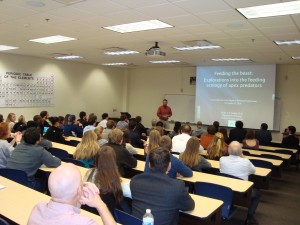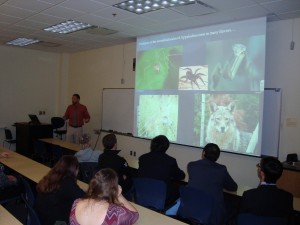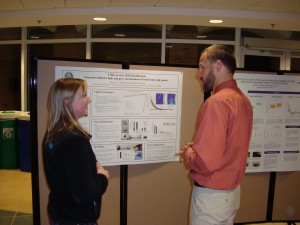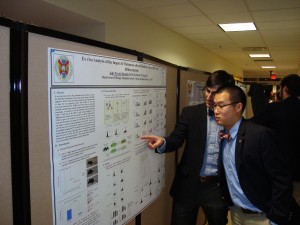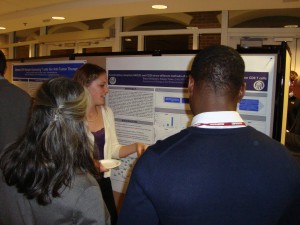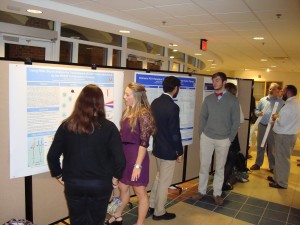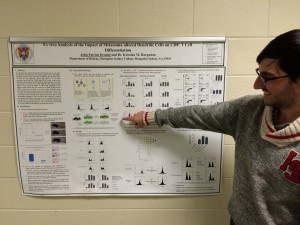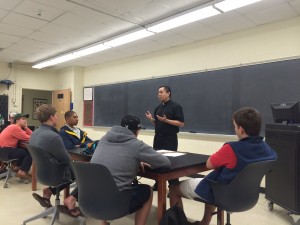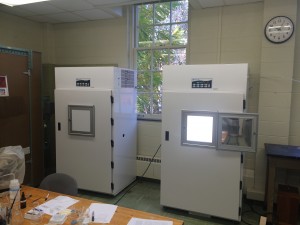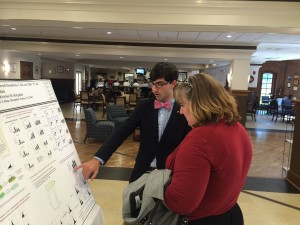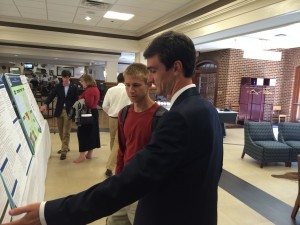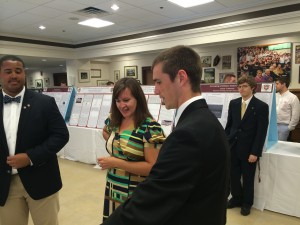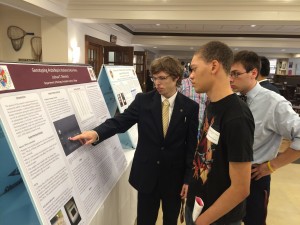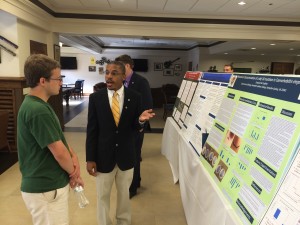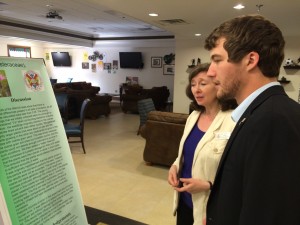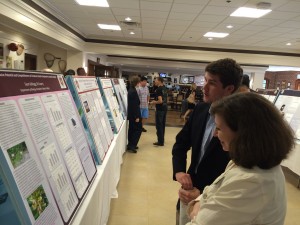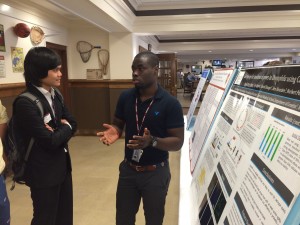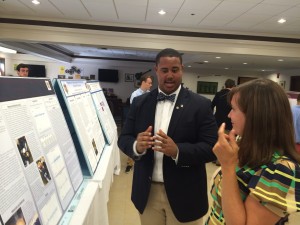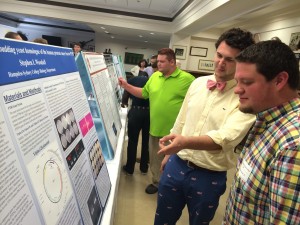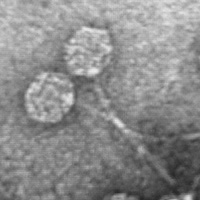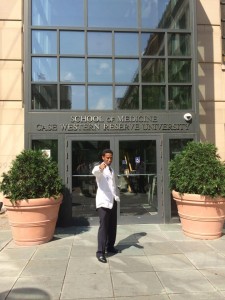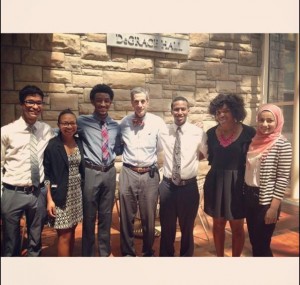On November 13, the Longwood University/Hampden-Sydney College Chapter of Sigma Xi hosted the 2nd annual Sigma Xi Research Symposium. Sigma Xi is an honorary research society that promotes excellence in scientific investigation in all fields of the life and physical sciences. The Symposium was held at Longwood University’s Chichester Science Center and featured a keynote speaker and poster presentations by undergraduate students from both institutions. Dr. Pieter deHart, Assistant Professor of Biology at the Virginia Military Institute, delivered the Symposium’s keynote address entitled ““Feeding the Beast: Explorations into the Feeding Ecology of Apex Predators.” This engaging talk focused on work that Dr. deHart has conducted with several undergraduate students at VMI and included ecological studies on the feeding habits of a wide variety of predators, ranging from praying mantids to coyotes. Following his keynote address, Dr. deHart interacted with several students during the Symposium’s poster session, which featured research conducted by undergraduates at both Hampden-Sydney College and Longwood University. 12 H-SC students and 13 Longwood University students from the Departments of Biology and Chemistry presented their work, and this session provided an excellent opportunity for close interaction and sharing of ideas between students and faculty from both institutions. To follow up on the success of the Symposium, Hampden-Sydney College will host an initiation ceremony in Spring 2015 for the induction of new student and faculty members to the Society.
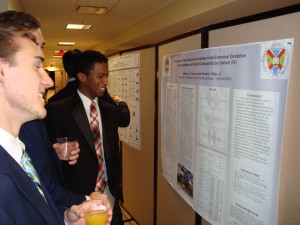
Jefferson Thompson ’16 (middle) presenting his summer research on free readicals to Myshake Abdi ’16 and Wes Eure ’16
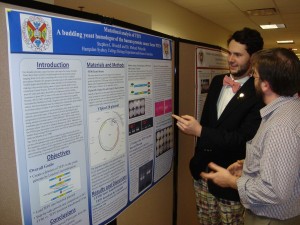
Stephen Woodall ’15 explaining his research on prostate cancer to Dr. Nick Deifel from the H-SC Chemistry Department

